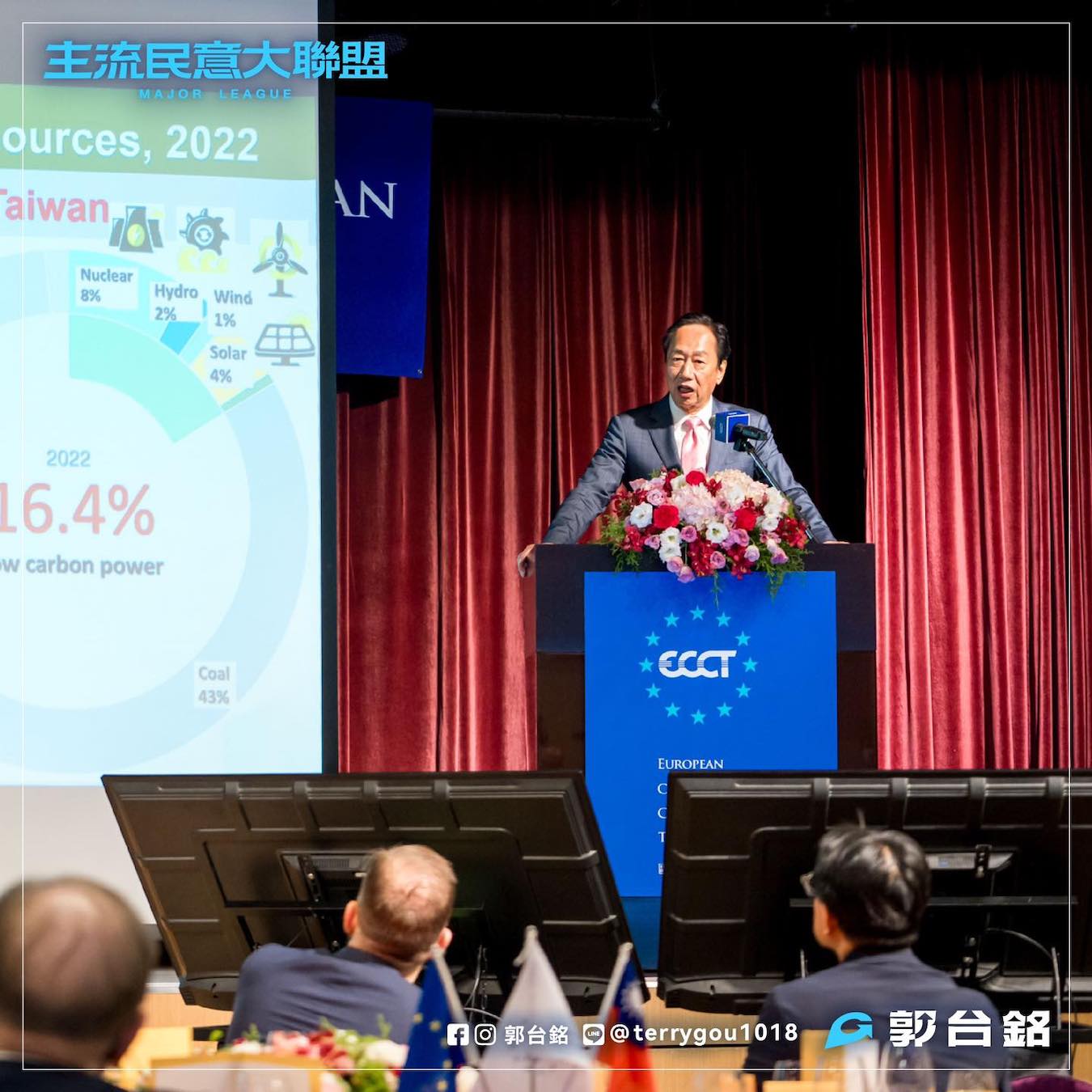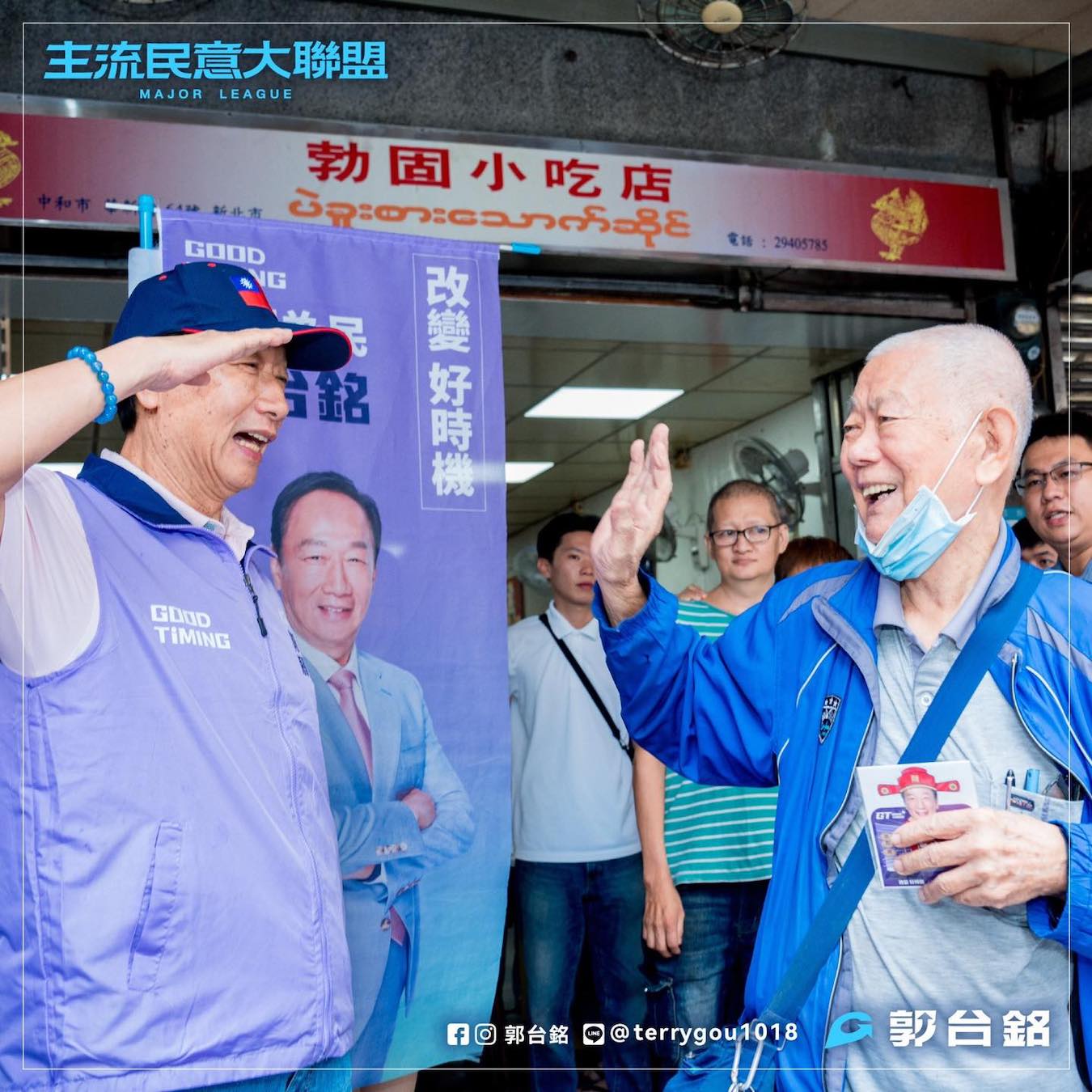by Brian Hioe
語言:
English
Photo Credit: Terry Gou/Facebook
FOXCONN HAS SEEN inspections by Chinese authorities in past days. This occurred over taxes in Guangdong and Jiangsu, while the tech giant was inspected over land use in Henan and Hubei.
The inspections have sometimes been interpreted as linked to the fact that FoxConn founder Terry Gou is a candidate in the 2024 Taiwanese presidential elections. It is not impossible that the inspections have other causes, however, even if politically motivated. For example, they could be an attempt to pressure Apple, which is heavily reliant on FoxConn for manufacturing iPhones, or the US.
To this extent, the inspections prove ironic. Gou has faced criticisms that he is a candidate potentially susceptible to influence from Beijing because of his investments in China. Nevertheless, Gou’s public response to this was to suggest that China could seize his property in China–including FoxConn–if they were to leave Taiwan alone in response.
 FoxConn founder and independent presidential candidate Terry Gou. Photo credit: Terry Gou/Facebook
FoxConn founder and independent presidential candidate Terry Gou. Photo credit: Terry Gou/Facebook
Certainly, one does not expect FoxConn investors to have been happy about Gou’s comments. Gou stepped away from the company in past years as he became increasingly focused on his political career. Gou also did not appear at a FoxConn tech day event earlier last week–despite stepping away, Gou continued to appear at the annual event in past years, but did not appear this time.
Though Gou has been angling for the presidency for around a decade, he ran for the first time in 2020, though he failed to secure the KMT’s nomination. In the current election cycle, Gou is running as an independent. As one of three pan-Blue candidates, Gou’s presence in the race further divides the pan-Blue camp, which was already split between Hou You-yi of the KMT and Ko Wen-je of the TPP.
It is not the first time that Taiwanese companies have faced investigations in China that are accused of being politically motivated. In 2021, China fined Taiwan’s Far Eastern Group and Asia Cement a total of 14 million USD between the two companies. It was alleged that violations had taken place at textile and cement factories owned by the conglomerates in Hubei, Jiangxi, Jiangsu, Shanghai, and Sichuan.
It would generally not be surprising for these fines to be for valid reasons, given environmental pollution and labor abuses committed at Taiwanese-owned factories in China. Yet what raised eyebrows was the claim by Chinese authorities that the fines were intended to punish pro-independence Taiwanese companies. In past years, China has also threatened to draw up a list of pro-independence companies who made donations to the pan-Green camp that it would shut out of the Chinese market.
The accusations were ironic. It is true that the Far Eastern Group, for example, has donated to the DPP and is one of the DPP’s largest donors. Nevertheless, the company has also donated to the KMT. It is possible that China’s targeting of what it perceived to be “pro-independence” companies was, in fact, rather scattershot.
Perhaps so, too, with targeting Terry Gou. After all, Gou continues to be a candidate that China could use as a proxy in Taiwan, given his extensive business links to China.
Nevertheless, it is possible that China is unhappy with Gou because of statements he made intended to turn around his pro-China image, including promising to fund defense efforts against China. These promises were outlandish in nature, claiming to fund the construction of 80,000 robots to defend against Chinese invasion, but Gou may have burned his bridges in some way with China through his efforts to make himself electable to a Taiwanese public that traditionally votes for the candidate it thinks will be able to prevent an outright Chinese invasion.
Or it is possible that China is unhappy with Gou for refusing to back out of the presidential race, in that he divides the pan-Blue vote in a way that significantly increases the chances of a DPP victory. This is also unclear. However, it could be that China’s probe into FoxConn could be to signal displeasure with Gou, as well as to signal that it prefers Hou or Ko.
 Photo credit: Terry Gou/Facebook
Photo credit: Terry Gou/Facebook
It is unclear who China would back between Hou and Ko, who both were conscious of the dangers of a pro-China image early in their political careers. Even as both are now squarely politicians of the pan-Blue camp, Ko started off as a pan-Green politician, and before joining the KMT, Hou was close to the DPP. As such, China also has plenty of reasons to distrust Hou and Ko.
Even so, while it remains unknown as to who China would prefer between the pan-Blue candidates, the candidates themselves have sometimes been seen as angling for Chinese support. This has sometimes been interpreted as what Ko intends to achieve through actions such as calling for the revival of the controversial CSSTA trade agreement or the construction of a bridge between Kinmen and China. It is to be seen if China throws its weight behind one or another of the candidates, then.
Ironically, given the raids, DPP presidential candidate William Lai has called on China to leave Taiwanese companies alone. Lai cited the contribution that Taiwanese have made to China’s economy. It is to be seen if China unwittingly gives the DPP political ammunition through targeting Gou. It would not be the first time that attempts by China to take a strong stance against Taiwan have led to backlash from Taiwan in a way that benefits the pan-Green camp.

